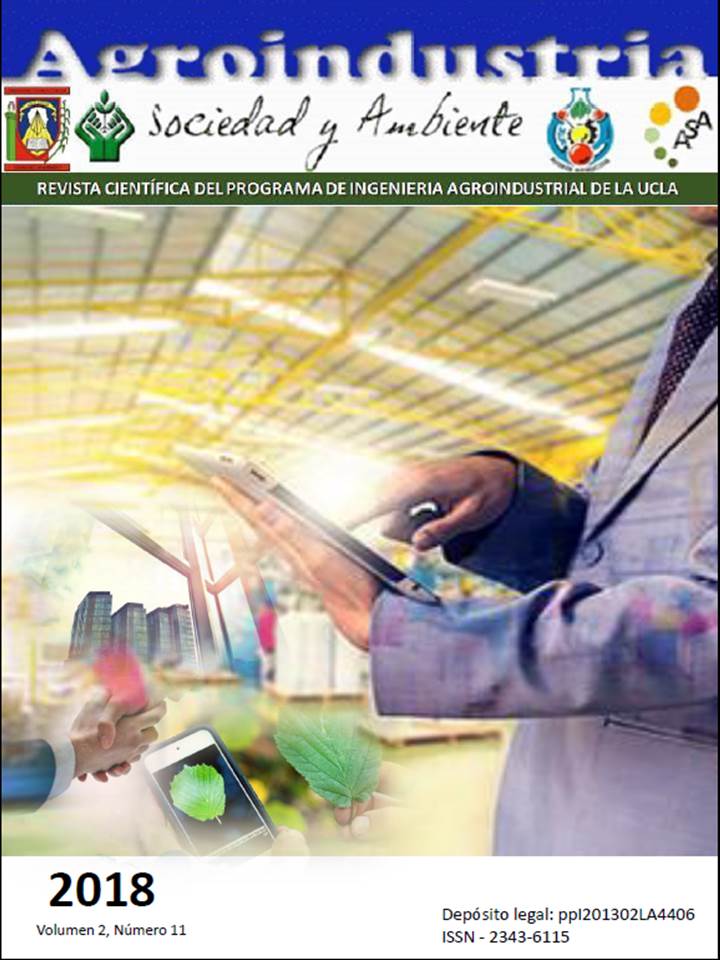El desarrollo económico e industrial a partir del ingenio de los agroproductores canarios en la sociedad larense, 1961-1981
Keywords:
Economic and industrial development, Canarian immigrants, Larense societyAbstract
The objective of this research is to analyze the development and industrialization of the ingenuity of the Canarian agro-producers in the Larense society, during the historical period that covers from 1961 to 1981, since it is to recognize the participation of Canarian farmers in the economic, business, cultural and industrial development in the Lara state, with the purpose of assessing and preserving its material and immaterial legacy. The methodology of historical science was applied through the historical method, with the use of primary and secondary sources. The result was an understanding of the intercultural process experienced in the region, based on the syncretism carried out between immigrants and Venezuelans, obtaining the development of Larense society as a result of the economic and cultural dialogue from the multidisciplinary point of view that through the use of new techniques and technologies, a productive apparatus was developed in the Larense region, and nationally significant companies such as EL TUNAL, AGROISLEÑA and TANAUSU were founded, which have given an endless contribution to society from the economic, social and cultural. In conclusion, the relevant role of canaries in Larense society is well known, since the development of the horticultural culture, agricultural production and industrial construction is recognized as a legacy of that conviction of cultivation of different crops, which made short term were the daily consumer foods within the table of the Venezuelan.
Downloads
References
Arias, F. (1997). El Proyecto de Investigación. Editorial: Episteme. Caracas Venezuela.
Bañez, N. y Peraza, C. (1986). Prácticas culturales para el cultivo de hortalizas. Guía horticultura. Centro de reciclaje, Agricultura organiza, y energías alternas.
Barreto, T. (1992). Antología y anotaciones sobre la historia y cultura de Quíbor. Academia Nacional de Historia. Tomo I. Gobernación del estado Lara.
Di Leo, A. (2010). ¿Agroisleña, el principio del fin?. Revista: VenEconomía Industria y Comercio: 28(1) Octubre de 2010. Venezuela.
El Tunal, (2016). Historia. [En línea]. Disponible: http://www.eltunal.com/. [Consulta: 2016, Febrero 10].
Fundación para el Desarrollo de la Región Centro Occidental de Venezuela (FUDECO). (1970). Distrito Jiménez. Barquisimeto, Venezuela.
Hernández, M. (2007). La emigración canaria a Venezuela. Ediciones Idea. Santa Cruz de Tenerife España.
Hernández, S., Fernández, C., y Piler, L. (2010). Metodología de la Investigación. Mc Graw Hill. Quinta edición. Editores México.
Meléndez, J, Monrroy, Y y Castellanos, P. (2007). Estadísticas continúas del sector agrícola por el método de rubros principales y sistemas productivos.
Morales, G. (2001). Las Islas Canarias ¿Una Región Aislada?. Boletín De La A.G.E. N.º 32 págs. 155-175. Universidad de Las Palmas de Gran Canaria/Carlos III de Madrid.
Pellegrino, A. (1989). Historia de la inmigración en Venezuela siglos XIX y XX. Editorial Metrópolis, C.A. Academia Nacional de Ciencias Económicas. Venezuela.
Published
How to Cite
Issue
Section




